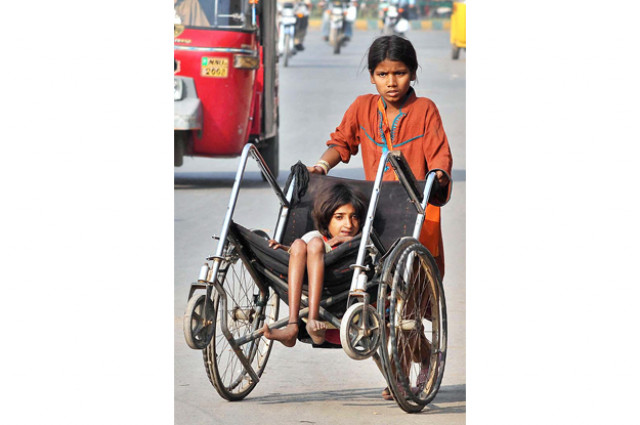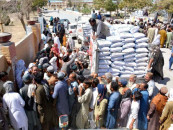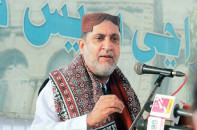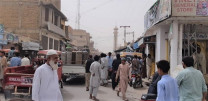Pandemic’s toll on differently-abled children
K-P’s disabled youth fear another year of despondency as health experts sound the alarm for an impending fourth wave

When Covid-19 first sank its claws in the northwestern province of Khyber Pakhtunkhwa (K-P) early in 2020, none could have foreseen how unremitting the pandemic’s impact would prove to be.
For 15-year old Kabir Jan, who hails from district Charsadda and studies at a school for the blind in Peshawar, the resulting lockdowns meant that he could no longer attend school. Where any other child would’ve rejoiced the break, for Jan and many like him the consequences of school closure were rather grave.
“It was a tough period…the gloomiest I have ever felt,” said the 15-year old recalling his plight during the lockdowns. Unlike mainstream schools, special needs schools are more than just places of education for the disabled. Children like Jan rely on these institutions for a lot of their functional needs and life skills, which aid them in navigating the able-bodied world.
“When the schools closed during the first wave, we were forced to stay at home all the time. I couldn’t meet my friends to experience the world beyond the four walls of my house for several months— it was depressing to say the least,” he expressed.
After almost two years in turmoil, the province recently got its much needed break from the pandemic as cases started going down, which elicited a chary return to some form of normalcy in the region. But peace could only last so long, and it is a fourth wave which is dreaded to be on the horizon. “If the experts are right about the new viral spell, I fear the loneliness it will cast upon our lives once again,” remarked the youth.
Agreeing to which, Peshawar Institute for the Blind Principal Muhammad Arif said that many of the children inducted at his school are immobile without assistance. “The school is the only place where they get to experience the outside world and there are very few such schools here anyway. So when the only avenue they have access to closes down too, these children are entirely locked at home,” he told this correspondent.
According to K-P Social Welfare Department Director Habib Afridi, there were around 3 million special persons in K-P but only around 51 education institutes for them, with a collective strength of only 4,000 students.
A reason for this is that a great population of disabled persons is centred in K-P’s rural regions, where access to special needs schools is virtually nonexistent.
Claiming that the government is working on increasing access, Afridi said that the provincial government has recently procured a brail printing press worth Rs4.30 million, which will aid special education in the province.
Whereas, a disabled person rehabilitation fund (DPR) established by the department has made it mandatory for any government or private institute with more than one million assets to recruit special person. If they violate this rule then they will have to offer fund against each vacancy, he said. “Using this policy we have collected Rs500 million in DPR fund which will be spent on the welfare of special needs persons,” said Afridi.
“The government will soon amend The Rehabilitation of Special Person Act 1981, as in the previous act there weren’t many stringent rules for the violators of special person rights but the new amendment will safeguard all their rights and announce strict punishments for the violators,” he told The Express Tribune.
Published in The Express Tribune, July 8th, 2021.



















COMMENTS
Comments are moderated and generally will be posted if they are on-topic and not abusive.
For more information, please see our Comments FAQ